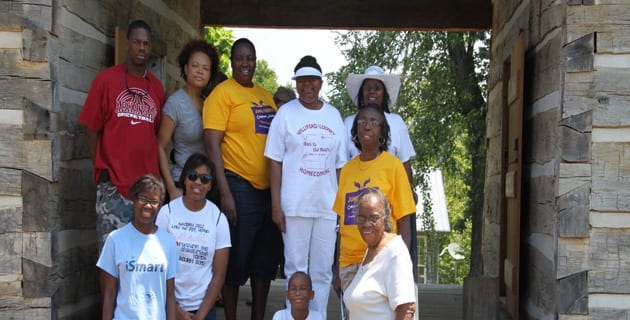The Annual Juneteenth Celebration was held last weekend at the Eddie Mae Herron Center in Pocahontas. Sponsored by the EMH Center and Black River Technical College, the event is the oldest nationally celebrated commemoration of the ending of slavery in the United States.
Cindy Robinett, local Historian and Adult Education Instructor at BRTC, presented a program on “African American One Room Schools” in Randolph County. She shared with the audience her findings, including information recently attained that indicates the St. Paul school established for African Americans actually existed for much longer than originally believed.
The presentation included information from old school records on four African American public schools in Randolph County documenting the number of children, the teachers, and the salaries paid. The four Randolph County public schools discussed included Peru, Biggers, New Hope (at Birdell), and Pocahontas (Present EMH Center).
The event also included a presentation by Dr. Cherisse Jones-Branch, Humanities Scholar and a visit to the Rice-Upshaw House and William Looney Tavern accompanied by Robinett, Dr. Derek Clements, Priscilla Stillwell, and Dr. Jan Ziegler of BRTC. Among the visitors were many family descendants whose ancestors, some of them slaves, had once lived at the Looney farmstead.
Other festivities included opening ceremonies presented by Boy Scout Troop 45, the Northeast Arkansas Heritage Dancers, and performances by the Studio for the Arts, the St. Louis Metro Singers, and Empty Pockets.
The official Juneteenth website explains that June 19, 1865, Union soldiers, led by Major General Gordon Granger, landed at Galveston, Texas with news that the war had ended and that the enslaved were now free. This was two and a half years after President Lincoln’s Emancipation Proclamation – which had become official January 1, 1863. The Emancipation Proclamation had little impact on the Texans due to the minimal number of Union troops to enforce the new Executive Order. However, with the surrender of General Lee in April of 1865, and the arrival of General Granger’s regiment, the forces were finally strong enough to influence and overcome the resistance.
The local Juneteenth Celebration was supported in part by a grant from the Arkansas Humanities Council and the National Endowment for the Humanities.

